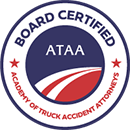What Are the Most Commonly Used Drugs by Truck Drivers?
Safety is paramount in the trucking industry. With long hours spent on the road, truck drivers face numerous challenges, including fatigue, stress, and the temptation to use substances to cope with the demands of their job.
While strict regulations govern drug use among commercial drivers, some individuals still engage in substance misuse, posing risks not only to themselves but also to other road users. When these accidents happen, it’s vital to consult with a qualified truck accident lawyer to ensure that you get justice and your rights are protected. That’s where Trucking Injury Law Group can help.
Let’s delve into the most commonly used drugs by truck drivers, the associated risks, and the measures taken to address this issue.
Understanding the Problem
Truck drivers are subject to stringent regulations enforced by the Department of Transportation (DOT) regarding drug and alcohol use.
However, despite these regulations, substance misuse remains a concern within the industry. According to research, the most commonly used drugs among truck drivers include alcohol, marijuana, amphetamines, cocaine, and prescription opioids.
These substances can impair cognitive function, reaction times, and decision-making abilities, significantly increasing the likelihood of accidents on the road.
- Alcohol: Alcohol remains one of the most prevalent substances abused by truck drivers. Recent studies found that 19% of commercial truck drivers reported binge drinking (5 or more drinks in a short period), while 9.4% of the truck drivers participated in everyday drinking. While the legal limit for blood alcohol concentration (BAC) is 0.4% for commercial drivers (half the concentration allowed for non-commercial drivers), some individuals still choose to drink and drive, jeopardizing their safety and that of others. Alcohol impairs judgment, coordination, and reflexes, making it particularly dangerous for those operating large vehicles like trucks.
- Marijuana: With the legalization of marijuana in several states, concerns have arisen regarding its impact on road safety. While some drivers may perceive marijuana as a less harmful alternative to alcohol, it can still impair cognitive function and motor skills. Despite being legal in some areas, truck drivers are prohibited from using marijuana, as it can compromise their ability to operate vehicles safely.
- Amphetamines and Cocaine: Stimulants like amphetamines and cocaine are sometimes used by truck drivers to combat fatigue and stay awake during long hauls. However, these drugs can cause agitation, paranoia, and reckless behavior, putting both the driver and others at risk. Moreover, the crash that follows the stimulant’s effects can be severe, leading to catastrophic accidents on the road. Some online estimates suggest that 27.6% of truck-driving respondents consumed drugs. Of these, 21.3% consumed amphetamines, and 2.2% consumed cocaine.
- Prescription Opioids: Prescription opioids, intended to manage pain, are another concern within the trucking industry. Some drivers may misuse these medications, either by taking higher doses than prescribed or using them recreationally. Opioids can induce drowsiness, impairing cognitive function and reaction times, making driving dangerous.
- Speedball: Sometimes referred to as the ‘new cocaine, a “speedball” is an especially dangerous mixture of cocaine and fentanyl, a powerful opioid 100 times the potency of morphine that is often fatal when misused.
Key Reasons for Drug Use
Truck drivers, like individuals in any profession, may turn to drugs for various reasons, often related to the unique challenges they face on the job. Here are some factors that may contribute to drug use among truck drivers:
Long Hours and Fatigue
Truck drivers often spend extended periods on the road, driving for hours at a stretch with limited rest breaks. The demanding nature of their work can lead to fatigue, making it tempting to use stimulants like amphetamines or cocaine to stay awake and alert.
Pressure to Meet Deadlines
Trucking schedules are often tight, with drivers under pressure to deliver goods within specific timeframes. This pressure can contribute to stress and anxiety, leading some drivers to seek relief through alcohol or other substances.
Isolation and Loneliness
Truck driving can be a solitary profession, with long stretches spent alone on the road. The isolation and loneliness experienced by some drivers may drive them to use drugs as a way to cope with feelings of boredom or depression.
Self-Medication for Pain or Mental Health Issues
Some truck drivers may use drugs as a form of self-medication to cope with chronic pain, injuries sustained on the job, or underlying mental health issues such as depression or anxiety. Prescription opioids, in particular, may be misused in an attempt to manage physical or emotional discomfort.
Lack of Support and Resources
Limited access to healthcare services, including mental health support and substance abuse treatment, may also contribute to drug use among truck drivers. Without adequate resources and support systems in place, individuals may struggle to address underlying issues driving their substance use.
It’s important to recognize that while these factors may contribute to drug use among truck drivers, not all individuals within the profession engage in substance misuse.
Many truck drivers prioritize safety and adhere to regulations regarding drug and alcohol use, recognizing the serious risks posed by impaired driving.
Consequences of Drug Use
The consequences of drug use among truck drivers can be severe, ranging from fines and license suspension to criminal charges and loss of employment.
Worse, accidents resulting from impaired driving can lead to injuries, fatalities, and significant financial liabilities for all parties involved.
Beyond the immediate repercussions, drug-related incidents tarnish the reputation of the trucking company and undermine trust in the industry as a whole.
Addressing the Issue
To combat drug use among truck drivers, various strategies are employed by both regulatory agencies and trucking companies. Random drug testing is a crucial component of DOT regulations, deterring drivers from engaging in substance misuse.
Educational programs and awareness campaigns also aim to inform drivers about the risks associated with drug use and promote healthier coping mechanisms for managing stress and fatigue.
Supporting Drivers
Recognizing the challenges faced by truck drivers, efforts are being made to support their mental health and well-being.
Trucking companies are implementing policies that prioritize rest breaks, encourage healthy lifestyles, and provide access to counseling services for drivers struggling with substance abuse or mental health issues. By addressing the underlying factors contributing to drug use, these initiatives aim to create a safer working environment for all.
Drug use among truck drivers poses significant risks to road safety and the well-being of individuals within the industry.
By understanding the most commonly used drugs and their effects, we can work towards implementing effective strategies to prevent substance misuse and promote a culture of safety on the road.
Through ongoing education, support programs, and rigorous enforcement of regulations, we can protect both truck drivers and the public from the devasting consequences of impaired driving. Contact our law office, Trucking Injury Law Group, if a trucker’s negligence led to you getting hurt.






